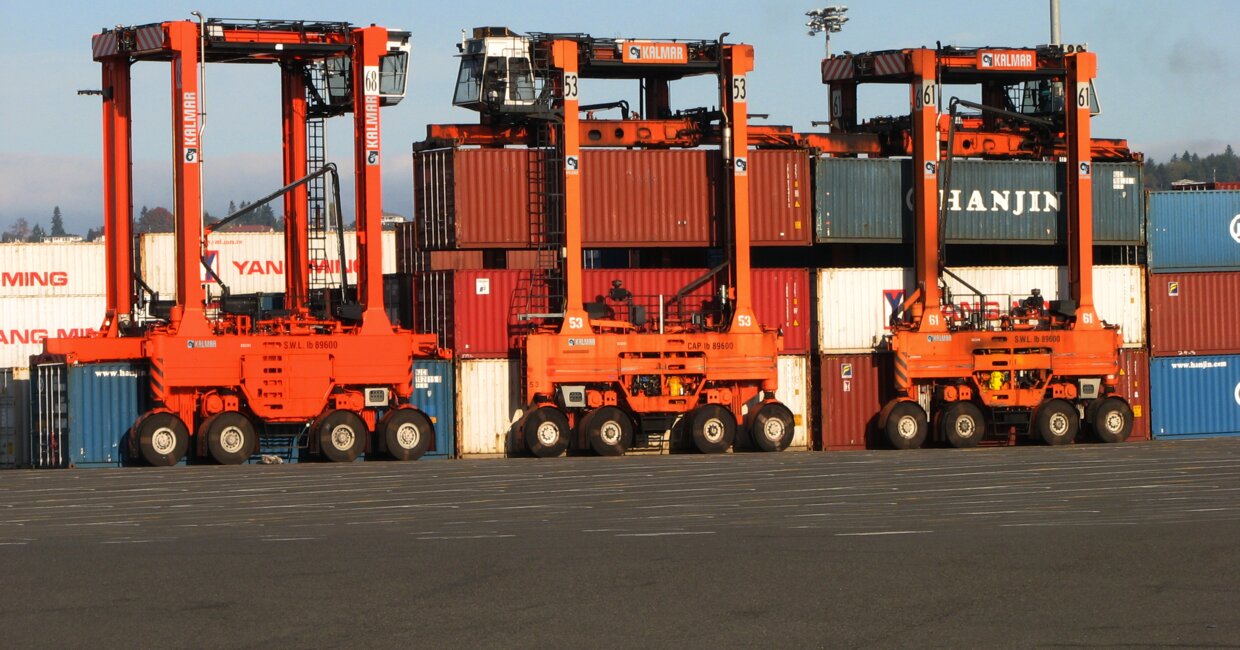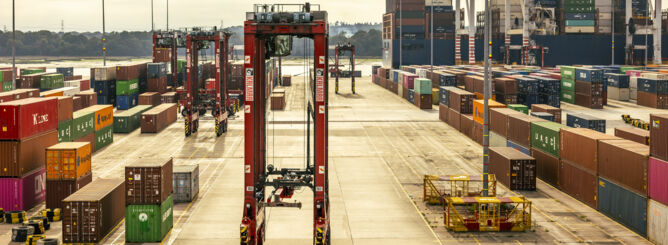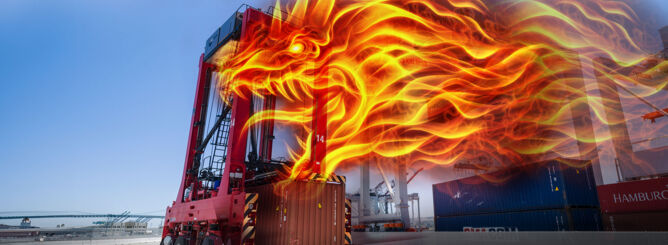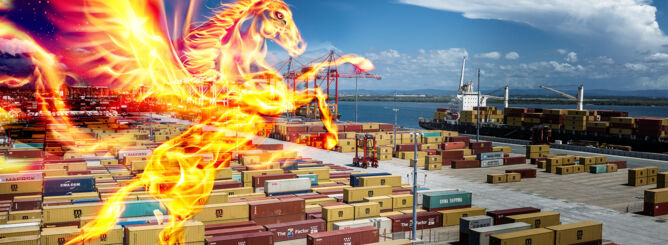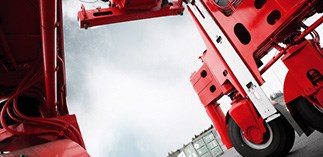End of an Era: The Last Kalmar Classic Straddle Carrier Leaves the Factory
Kalmar is delivering its last diesel-powered Classic Straddle Carrier. The model has served as a mainstay at ports and container terminals for decades, but hybrid and diesel-electric machines have now become the standard for terminal operators looking to improve their eco-efficiency.
DOWNLOADS
Kalmar Straddle Carrier BrochureThe history of the Kalmar Classic Straddle Carrier begins with the advent of global freight containerisation in the 1960s. In subsequent decades, the model has undergone radical development over multiple product generations. Renowned for its reliability and easy maintenance even in extreme environments, the diesel-powered Kalmar Classic Straddle Carrier has been a ubiquitous piece of equipment at ports and terminals worldwide. Over 2,500 units have been delivered since the late 1970s, and a significant number of these machines are still in operation around the globe.
Kalmar has now discontinued the Classic Straddle Carrier, and the final machine of this type will be delivered to a terminal in East Asia later this year. Subsequently, Kalmar will focus exclusively on hybrid and diesel-electric straddle and shuttle carriers, as well as its line of FastCharge™ electric machines.
"The Kalmar Classic Straddle Carrier is a true workhorse that has served us and our customers extremely well, and we are proud of its performance over the years," says Mikko Mononen, Vice President, Sales Management, Horizontal Transportation, Kalmar. "However, the time has now come to discontinue the model in line with Kalmar's and our customers' sustainability targets, and in favour of more modern solutions."
"The time has now come to discontinue the model in line with Kalmar's and our customers' sustainability targets, and in favour of more modern solutions,"
Hybrid is the new standard
Kalmar's straddle carrier product line now consists of the Kalmar Hybrid Straddle Carrier, the diesel-electric Kalmar Straddle Carrier and the Electric Straddle Carrier, with further electrically powered solutions under development. Currently, hybrid machines account for almost two-thirds of the order intake of new Kalmar straddle carrier models.
A unique advantage of Kalmar's Hybrid Straddle Carriers is that they are true hybrid machines that use start-stop technology to run the diesel engine only when maximum power is needed beyond the capacity of the Li-ion battery system. By contrast, the hybrid machines offered by other manufacturers are so-called "light" hybrids, in which the diesel engine is used continuously.
"The market demand for diesel-powered machines has declined steadily in recent years. This means that as production runs become smaller, certain components will become harder and more expensive to source," notes Mononen. "So even the expectation of the diesel machine being the lowest-cost option no longer holds true when compared to newer diesel-electric models. And when taking into account lifetime cost of ownership, true hybrid models will be even more competitive in the long run."
"And when taking into account lifetime cost of ownership, true hybrid models will be even more competitive in the long run."
Leading the charge
The Kalmar Classic Straddle Carrier was a game-changing product for its time, but Kalmar now wants to look to the future. In addition to responding to clear signals from customers, the company's aim is to take a proactive role in the electrification of the entire container handling industry.
"Kalmar led the way with introducing hybrid straddle carriers already several years ago, and the market has now come around to the point where hybrids have become the standard solution for new deliveries," Mikko Mononen says. "Our goal is to make the next generation of Kalmar Straddle Carriers the defining products of their own era, so we are proud to retire the Classic Straddle Carrier after decades of great service. Whatever model of machine our customers opt for, we will be there to help them reduce their emissions without compromising performance."
"Whatever model of machine our customers opt for, we will be there to help them reduce their emissions without compromising performance."
